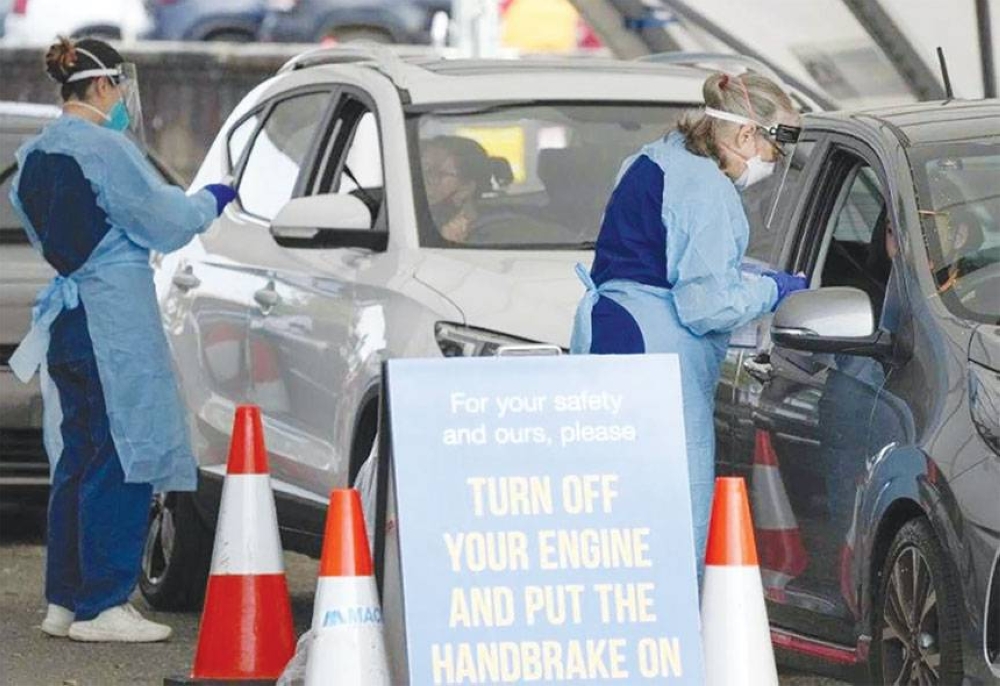
SYDNEY— Australia’s New South Wales state reported 16 deaths on Sunday in its deadliest day of the pandemic, even as it relaxed rules to allow some essential workers in isolation to return to work if they are asymptomatic.
Just over 30,000 new cases were reported in Australia’s most populous state, forcing those people to join more than 200,000 others in isolation.
No statistics are kept to determine how many of those are essential workers in the food and manufacturing sectors. But some employers say up to half of their workers have been furloughed after coming into contact with a positive case.
Shoppers have reported empty shelves in many supermarkets because of the Omicron outbreak’s impact on food processing and supply chains.
“Critical workers in the food logistics and manufacturing sectors furloughed as close contacts will be permitted to leave self-isolation to attend work if they have no symptoms of Covid-19, to ensure the state has continued access to essential goods,” New South Wales (NSW) Health said in a statement on Sunday.
The workers can only leave self-isolation if their employer decides their absence poses a high risk of disruption to the delivery of critical services and if they are not able to work from home.
Returning workers will have to wear masks and comply with risk-management strategies required by their employers, including daily rapid antigen tests. If they test positive, they will have to return to isolation.
The rule change applies in agriculture to biosecurity and food safety personnel undertaking critical duties; in manufacturing to the production of food, beverages, groceries, cleaning and sanitary products; and in transport to food logistics and delivery.
The 16 people who died on Sunday included eight women and eight men aged in their 60s, 70s, 80s and 90s, NSW Health said. The figure tops the previous record of 15 deaths, which has been reached twice, on September 29 and October 1 last year.
There were 1,927 people in hospitals, including 151 people in intensive care.
Victoria state reported 44,155 new cases on Sunday, including 22,051 from rapid antigen tests and 22,104 from PCR tests. Of those cases, 9,000 were from rapid antigen tests conducted on Saturday while more than 13,000 were done on previous days and reported on Sunday.
The numbers do not necessarily reflect the true spread of the virus as they only count the number of recorded cases.
Screening carried out by health authorities showed that around 80 percent of new cases were the Omicron variant.
Victoria recorded eight deaths on Sunday, but Australia Health Minister Greg Hunt said cases of severe illness are relatively low amid the spread of Omicron.
